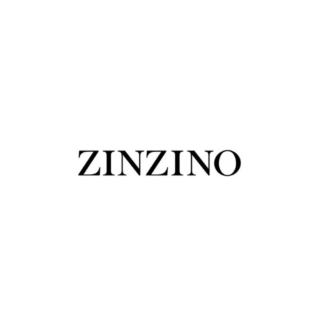Brazilian beauty brand Natura, the ninth largest direct selling company in the world with 2016 net sales of $2.26 billion, has been busy in recent years. In the midst of leadership changes—long-time CEO Alessandro Carlucci retired in 2015 and subsequent CEO Roberto Lima resigned—the company has not only moved its business into the digital age, but also entered into the retail space. Economic instability in its home country, and largest market, spurred Natura to restructure its Brazil business and carve out distinct units for its direct sales, digital and retail activities there. However, new CEO João Paulo Ferreira seems to be taking it in stride. Guided by his leadership, the company has continued to diversify its business channels with the acquisition of two smaller beauty brands that share its commitment to ethical business practices, sustainability and making a positive social impact. DSN recently spoke with Ferreira about these changes.

DSN: Tell us about your transition into the role of CEO. What do you want to continue? What do you want to change?
JF: I greatly admire the work that Alessandro Carlucci and Roberto Lima did at Natura, and I’m very fortunate to have succeeded them at a moment of great evolution in our business model. With the acquisition of The Body Shop, Natura is accelerating its strategy of expanding its international footprint and building a purpose-driven, multibrand, multichannel cosmetics group.
Notwithstanding this transformation, one thing remains unaltered: the central role of the Natura consultants, our sales representatives, in our every decision. Actually, we have strengthened our commitment to our consultants with a new value proposition, which will enable us to achieve better results in our main market, Brazil.
We are focusing on the revitalization of our direct sales efforts, the development of innovative product proposals with surprising technology and performance, portfolio rationalization and the development of new channels.
For sure, we have extremely challenging goals ahead of us, but it is very reassuring to work alongside a team as competent as the one we have today. In recent years, we have formed a very well prepared Executive Committee, with committed professionals and complementary talents.
DSN: How did you get into direct sales and what is your history with Natura?
JF: I came to Natura seven years ago as Vice President of Logistics and Operations, then I held the position of Commercial Vice President. These are very sensitive areas for the business, and they were essential in converting me into an advocate of direct sales. But there is no better way to understand the needs and the beauty of the business than maintaining direct contact with our consultants. I’ve learned a lot from them.
In these years I have also experienced very positive changes in my personal life, and I believe that I have become a better person since I started at Natura. Being at the forefront of a business that transforms the lives of so many people provides a tremendous sense of self-realization.
DSN: Natura has established retail shops and diversified its business, having purchased Australia-based Aesop and U.K.-based The Body Shop in recent years. What is your involvement in this business strategy? Please explain the new business model for direct selling.
JF: Natura has made decisive steps toward internationalization in recent years, with the growth of our Latin American operations and the acquisition of Aesop in 2013. It was a natural course to seek opportunities beyond Latin America. Since 2016, we’ve also been broadening our retail network as part of the effort to build a global, omni-channel approach in natural beauty. For these reasons, the strategic rationale behind the acquisition was so compelling.
The direct sales business, modernized by digital technology and offering higher-value opportunities for our sales representatives, is and will continue to be Natura’s main sales channel in Brazil and Latin America, with potential for expansion to other geographies. The Body Shop adds other significant channels to our structure, in line with our strategic aim. We believe that channel diversification promotes multiple purchase and experience opportunities with our brands.
DSN: With Brazil currently having an unpredictable economy, how has Natura navigated doing business in the country?
JF: Despite the crisis, we are experiencing a period of enthusiasm, a new cycle of expansion in Natura’s history, the revitalization of relationship selling and the acquisition of The Body Shop.
Of course, we are facing a very difficult situation in Brazil, but we can see our efforts beginning to stabilize the business. We have carried out a series of actions that will enable the recovery of our performance in the country. Among them, as I mentioned before, are the evolution in direct sales, the advance in the digitalization of our operations, the diversification of channels, especially in retail, and the growth of international operations.
The acquisition of The Body Shop expands Natura’s footprint and decreases Brazil’s participation in our revenue. Brazil’s share in our net sales will decrease from 68 percent to 47 percent after the acquisition of TBS.
DSN: Where do you see growth opportunities as you look out three to five years into Natura’s future?
JF: In the short term, we will be closely focused on executing the plan to revitalize direct sales in Brazil, with a different value proposition for our consultants. The rapid digitalization of our business is also strategic, with several different platforms for both consumers and consultants.
In the medium term, we see huge opportunities to accelerate international growth with the expansion of direct sales to other promising emerging markets in Asia and Africa, for example.
DSN: Natura has stood out in the global corporate world for its sustainability efforts and is considered a world leader in clean capitalism. How do you see innovating in an area in which your company is already exceptional?
JF: We have set ourselves the challenge of having a positive financial, social, cultural and environmental impact. These goals were consolidated in our 2050 Sustainability Vision, published in 2014. To accomplish these goals, we must be constantly innovating in our processes and products, and in the way we relate to customers, suppliers, consultants and the environment.
Our product development efforts combine sustainable design with traditional and scientific knowledge, using an open innovation model that involves a network of national and global partners. We work together with our suppliers to reduce the impact of our products, expanding the use of recycled materials, such as PET and glass. For a decade now, we have been a carbon neutral company.
In short, innovation in sustainability is an essential element to ensure Natura remains a relevant company for society.


